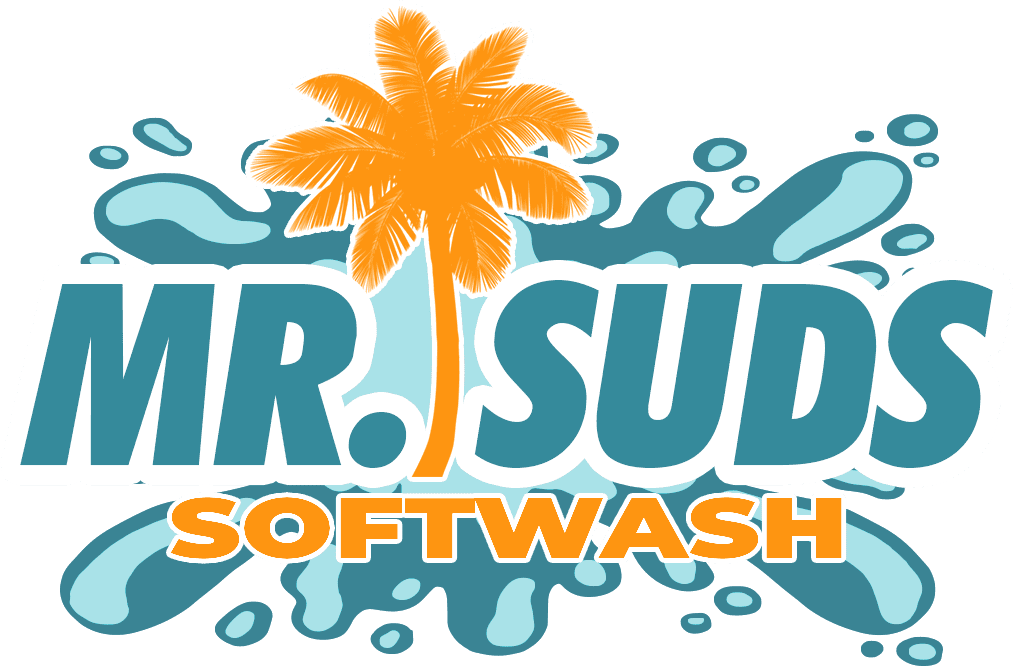When it comes to keeping your home clean and well-maintained, the roof is often one of the most overlooked areas. Yet it’s also one of the most important to care for. We’ve seen far too many homeowners struggle with roof stains, streaks, and organic buildup, and even worse, pay the price with long-term damage from choosing the wrong cleaning method. That’s why we’re here to break down the real differences between soft wash roof cleaning and pressure washing. Each approach has its place, but when it comes to preserving your roof and extending its life, one method clearly stands out. In this article, we’ll show you what sets soft washing apart, where pressure washing still works best, and why choosing the right system matters more than you might think.
What Is Soft Wash Roof Cleaning and How Does It Work?
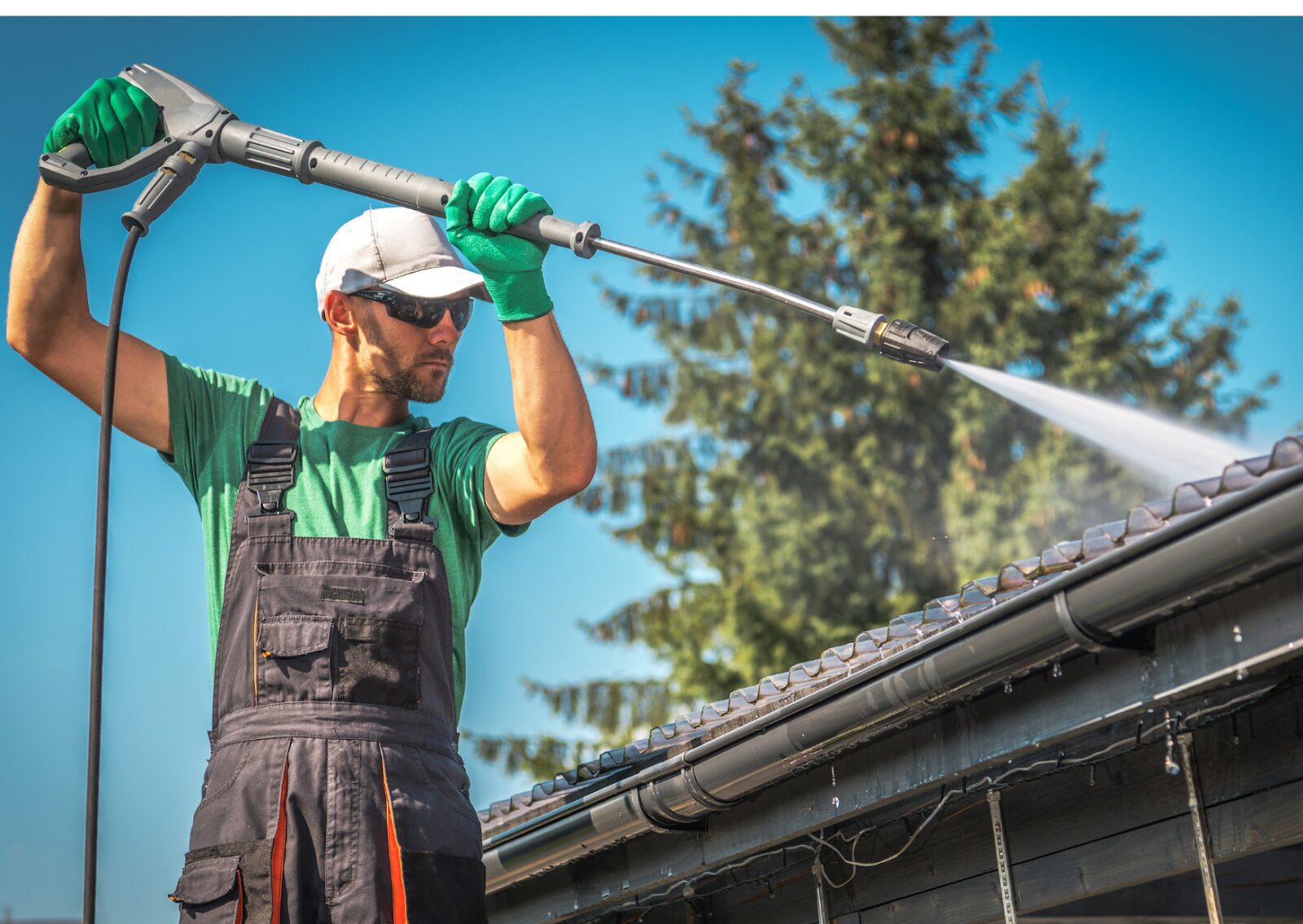
Soft wash roof cleaning is a safer, more effective way to clean your roof without using high-pressure water that can damage delicate surfaces. The process uses a soft wash system that applies a biodegradable solution to remove algae, mold, mildew, Gloeocapsa magma, and black streaks from your roof surface.
This technique relies on low-pressure washing, typically no more than that of a regular garden hose, paired with cleaning agents like sodium hypochlorite to break down and wash away organic buildup. Unlike pressure washing, which can wear down shingles, damage clay tiles, or strip away protective granules, soft washing is specifically designed to clean without causing costly repairs down the line.
How Does Pressure Washing Differ From Soft Washing?
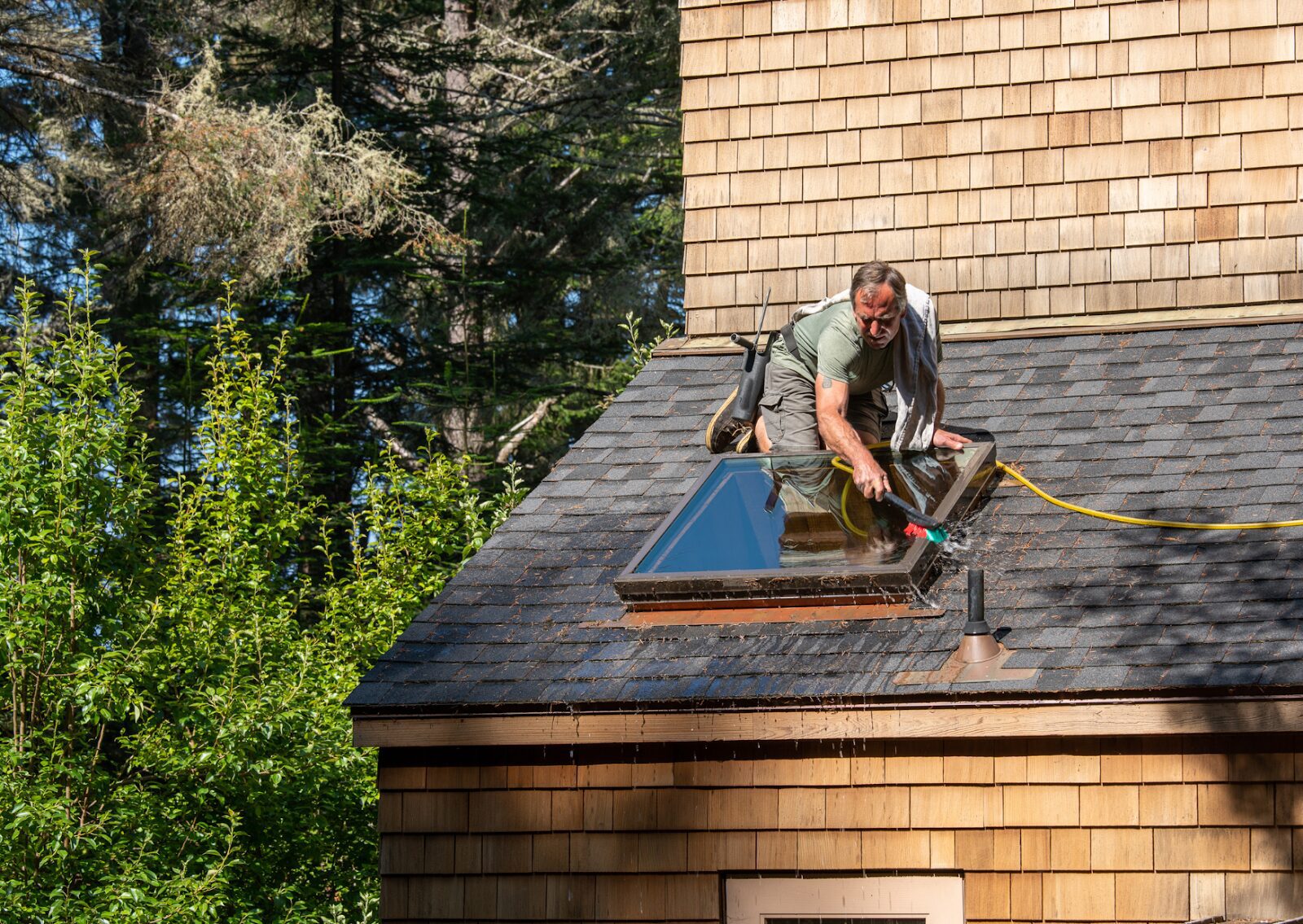
The key difference between soft washing and pressure washing lies in the amount of pressure and the cleaning approach used. While soft wash cleaning relies on chemicals and low pressure, pressure washing uses high-pressure washing from a pressure washer to blast away dirt and grime.
Power washing may work well for hard surfaces like concrete, but when it comes to roof cleaning and other exterior surfaces like siding or painted wood, it can be too aggressive. Soft washing work offers a gentle alternative that avoids damage, especially on older roofs or homes with more fragile roofing materials.
Why Is Soft Wash Roof Cleaning Ideal for Delicate Roofing Materials Like Shingles and Clay Tiles?
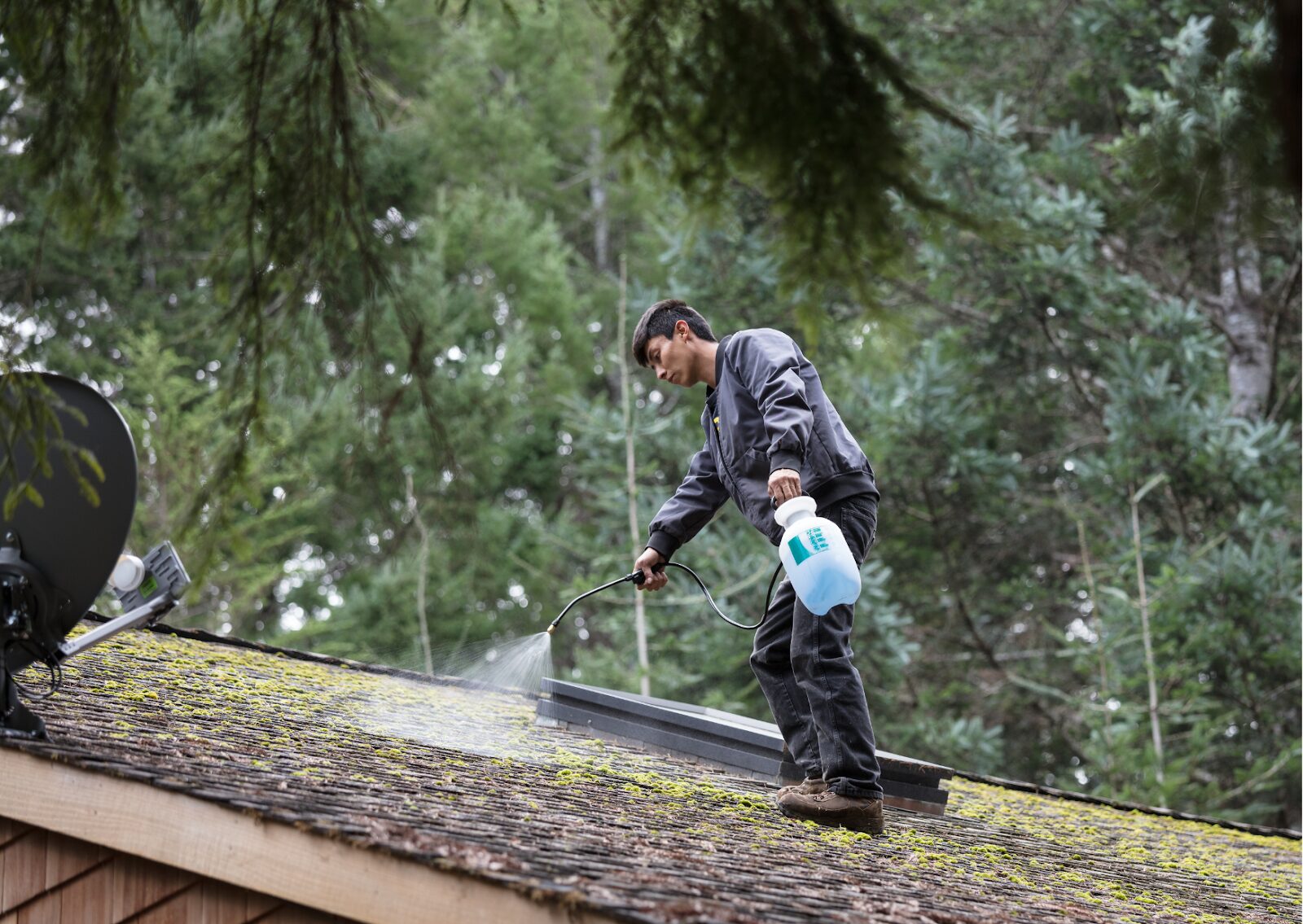
Your roof is one of the most valuable and sensitive parts of your home. Using a pressure washer on fragile materials like shingles or clay tiles can result in cracks, dislodging, and permanent surface damage. This is why soft wash roof cleaning is highly recommended for homes with more delicate tiles or older roofing structures.
Because the method uses low pressure and a targeted solution to kill the contaminants rather than just rinsing them away, it’s perfect for cleaning roofs without shortening their lifespan. Mr. Suds Softwash understands the importance of preserving these materials and uses proven soft wash systems to deliver long-term results.
Can Pressure Washing Damage My Roof Over Time?

Absolutely. Repeated high-pressure washing on a roof will strip away granules from shingles, compromise waterproofing layers, and even cause water intrusion into the home. Unlike pressure washing, soft wash cleaning is gentle and tailored to roof care.
Water from pressure washers can force its way under roofing materials, lifting shingles or soaking the underlayment. This leads to moisture retention and, eventually, rot and leaks. Over time, this not only leads to costly repairs but can also severely affect your home’s structure.
What Types of Build-Up Can Soft Wash Cleaning Remove Effectively?

Soft washing is incredibly effective at removing stubborn and unsightly buildup on your roof and exterior surfaces. It tackles:
- Black streaks caused by Gloeocapsa magma
- Green moss and algae
- Fungal growth, like mold and mildew
- Organic dirt and debris
With a good biodegradable solution, soft wash cleaning doesn’t just rinse away the problem, it kills the organisms at their root, ensuring a cleaner, longer-lasting result. The process delivers near-instant results, especially in the summer months when heat helps activate the cleaning agents.
How Does Soft Washing Improve Curb Appeal and Property Value?

Your roof makes up a large portion of your home’s visual profile. A dirty, streaked roof can drag down your home’s curb appeal, even if everything else looks pristine. Clean roof surfaces, free from moss, stains, and algae, can transform how your entire home looks from the street.
Additionally, potential buyers or appraisers often view a clean roof as a sign of good maintenance. A single-wash roof cleaning session can give your home a fresh, well-kept appearance, making it more attractive to future buyers.
Is Soft Washing Safe for Other Exterior Surfaces Like Windows and Gutters?

Yes, one of the best things about soft washing is its versatility. In addition to roof cleaning, it’s ideal for more fragile areas like:
- Window washing
- Gutter exteriors
- Vinyl siding
- Painted wood
- Screen enclosures
Where power washing might break seals or strip paint, soft washing work is gentle enough to protect these features while still delivering a deep clean. Mr. Suds Softwash uses techniques that are tailored for each surface, providing thorough results without the risk.
What Are the Long-Term Benefits of Soft Wash Roof Cleaning?

The long-run benefits of soft wash roof cleaning are impressive. Aside from a cleaner home, you’ll notice:
- Fewer cleaning jobs needed each year
- Slower return of mold, algae, and mildew
- Increased lifespan of roofing materials
- Reduced likelihood of costly repairs
By killing bacteria and fungi at their source, the soft wash system ensures that your home stays cleaner for longer. It’s an investment in both maintenance and appearance.
How Often Should You Schedule Soft Washing Work for Your Roof?

It’s typically a good idea to have soft wash roof cleaning done every 1–2 years, though this varies depending on location and weather. In humid regions like the Lowcountry, where algae and mildew thrive, annual cleanings might be necessary.
Watch for signs like:
- Dark streaks or stains
- Patchy green moss
- Areas where debris collects
- Discoloration or dull appearance
Routine cleaning, especially during the summer months, keeps your home looking its best and your roof in top condition.
Can You DIY Roof Cleaning with a Garden Hose or Should You Hire a Pro?

While it may be tempting to use a garden hose and store-bought cleaner to wash your roof, this usually leads to poor results and potential danger. Roofs are slippery, high places that require proper safety gear and experience.
A professional service like Mr. Suds Softwash uses commercial-grade soft wash systems, proper safety harnesses, and a precise mix of cleaning chemicals. DIY attempts often lack the pressure control, chemical ratio, and experience needed for effective, damage-free cleaning.
How Do You Choose Between Soft Washing and Power Washing for Different Surfaces?

When deciding between soft washing and power washing, the material and location of the surface matter most. Soft washing is ideal for more delicate surfaces like roofs, windows, siding, and stucco. These areas can be easily damaged by high pressure and benefit from the gentle, chemical-based approach of a soft wash system. On the other hand, power washing is better suited for tougher, more durable surfaces such as driveways, sidewalks, brick walls, and stone patios, where high pressure can be used without risk of damage. The key is to match the cleaning method to the surface material to ensure effective cleaning without causing harm. Choosing the right method helps maintain your home’s condition while avoiding unnecessary wear and tear.
Ready to Make the Switch to a Safer, Smarter Roof Cleaning Solution?
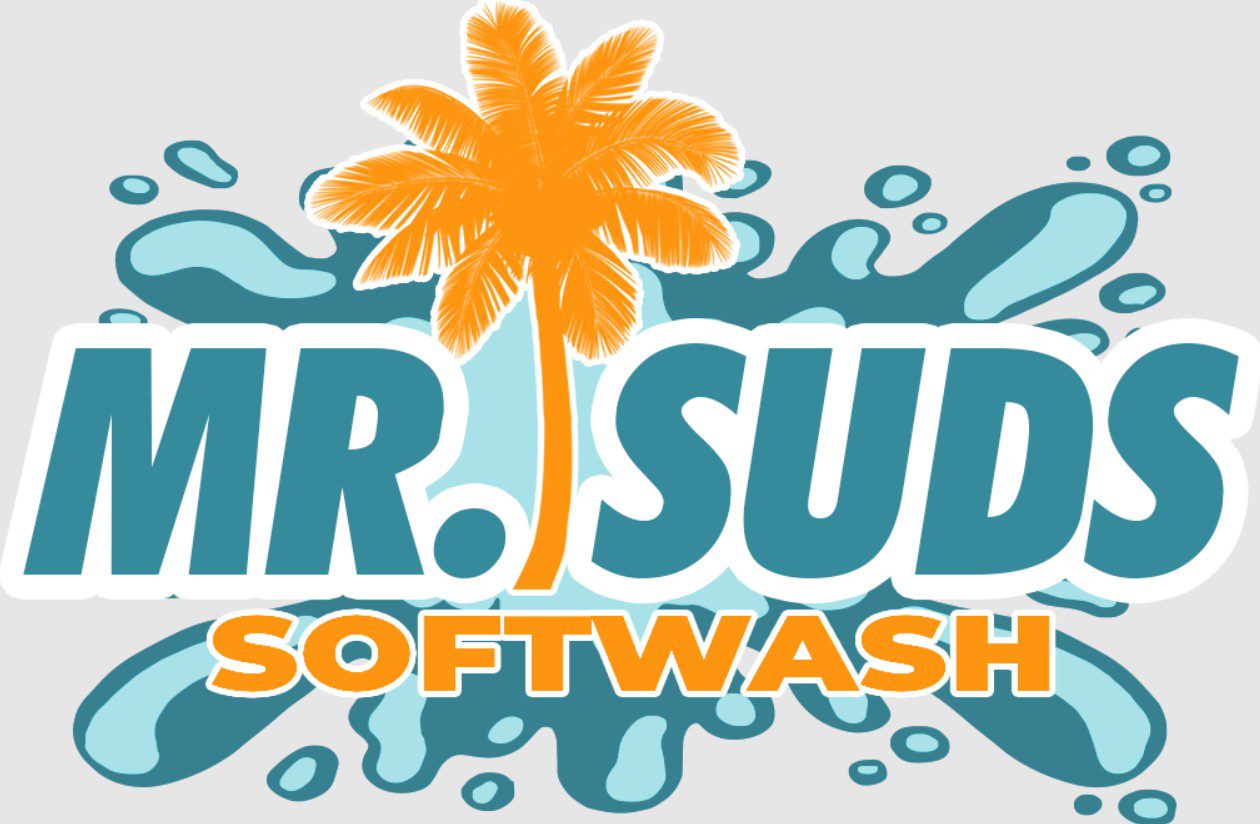
If your roof is stained, streaked, or covered in moss, it’s time to consider a safer and smarter solution. Soft wash roof cleaning offers a powerful way to refresh your home without the risk of damage.
With several benefits, from increasing your home’s curb appeal to preventing costly repairs, this method gives you results that last. Our friends at Mr. Suds Softwash are experienced in handling all types of roofing materials and exterior surfaces, and they deliver outstanding results tailored to your home’s specific needs.
Don’t risk your roof with harsh pressure washers. Book a professional soft wash roof cleaning service today and enjoy a cleaner, safer, and longer-lasting home exterior.
Final Thoughts
At Mr. Suds Softwash, we believe every homeowner deserves a roof that looks great and lasts longer. We’ve seen firsthand how the right cleaning method makes all the difference. That’s why we use the best tools, the safest techniques, and the most effective soft wash systems to deliver results you can see and feel.
From tiles to shingles, from window washing to full roof cleaning, we’re here to help protect your investment and keep your home looking its best. If you’re ready to experience the instant results of true professional care, let’s get your roof clean the right way, safely, gently, and effectively.
Frequently Asked Questions:
1. What is soft wash roof cleaning?
Soft wash roof cleaning is a low-pressure cleaning method that uses a biodegradable solution to remove mold, algae, mildew, and black streaks from your roof without causing damage to shingles or tiles.
2. How is soft washing different from pressure washing?
Soft washing relies on low pressure and cleaning solutions, making it safe for delicate surfaces like roofs. Pressure washing uses high pressure to blast away dirt, which can damage roofing materials and lead to costly repairs.
3. Can pressure washing damage my roof?
Yes. High pressure from a pressure washer can strip away granules, loosen shingles, and force water underneath roofing materials, leading to leaks and structural issues.
4. Is soft washing safe for all types of roofing materials?
Yes. Soft washing is ideal for cleaning shingles, clay tiles, and other delicate roofing surfaces because it gently removes dirt and growth without causing damage.
5. What kind of stains and buildup does soft washing remove?
Soft washing removes black streaks from gloeocapsa magma, green moss, algae, mildew, mold, and other organic buildup like dirt and debris.
